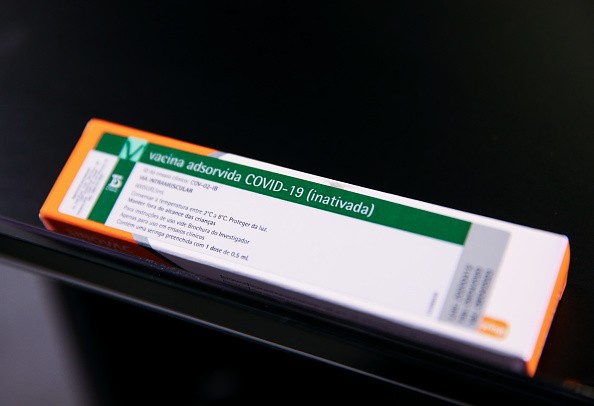Sinovac Vaccine From China Is 78% Effective in Brazil Trial, but Experts Say Details Remain Sketchy
Researchers said Thursday that the Sinovac, the COVID-19 vaccine developed by a Chinese firm, was 78 percent effective in a late-stage Brazilian trial, but experts ask for more details.

Brazil is the second country globally with the highest number of the COVID-19 death toll, next to the United States. At present, Brazil has more than 200,000 deaths and still counting, according to Worldometers. This is the reason why the country is fast-tracking to administer the coronavirus vaccine within this month.
Sinovac's Result of Late-Stage Trial in Brazil
Sinovac, or also known as CoronaVac in other countries, is a COVID-19 vaccine developed by a China-based biopharmaceutical company. On Thursday, Brazilian researchers said that the late-stage human clinical trials in Brazil showed that the vaccine was 78 percent effective with no severe cases.
According to a published report in Reuters, the result of Sinovac's late-stage human clinical trial was watched closely by other developing countries. They are counting on the vaccine to begin mass inoculations and help end the global pandemic.
Even though Sinovac falls short compared to the 95 percent efficacy rate of Pfizer-BioNTech and Moderna, China's vaccine is easier to transport and be stored at normal refrigerator temperatures. This is also one of the reasons why developing countries are looking into their data.
Moreover, though its efficacy rate is below 95 percent, China's Sinovac is still above the 50 to 60 percent benchmark set by the World Health Organization (WHO) for vaccine development early in the pandemic and given the fact also of the urgent need.
Experts Ask More Details About Sinovac Vaccine
Health experts are now asking for more details of China's Sinovac COVID-19 vaccine. Sinovac was below preliminary findings from Turkish researchers and lacked detailed data provided on U.S. and European vaccines.
Meanwhile, the director of Brazilian biomedical center Butantan, Sinovac's research and production partner, said that detailed results were being submitted to the Anvisa health regulator as part of a request for emergency use of the vaccine.
Cristina Bonorino, who sits on the Brazilian Immunology Society's scientific committee, said: "One thing is a presentation at a news conference. It's something else to get the data and analyze it, which is what Anvisa will do. If it's what they say, that's an excellent result."
Butantan Director Dimas Covas also said during a news conference that full data of China's Sinovac would be released in an unspecified scientific publication but did not provide a timeline.
Despite some health experts' questions, Sinovac's human clinical trial is distinct because it included elderly volunteers who are part of the most vulnerable group for the virus.
Covas said that Sinovac had entirely prevented severe COVID-19 cases among the vaccinated group, and that includes the elderly. He added that none of those who received the vaccine become ill enough to require hospitalization.
The federal government of Brazil already has a deal to secure up to 100 million doses of AstraZeneca vaccine, 70 million of them produced on home soil.
Subscribe to Latin Post!
Sign up for our free newsletter for the Latest coverage!

















